When speaking about the nineties, we most often recall crimes, sanctions, poverty, and destruction, and rarely those who opposed such politics – those who raised their voices, wrote, protested, and saved others because they believed things had to be different. This exhibition is an attempt to express gratitude to them, it was said at the opening of the exhibition “The Nineties: From Non-Compliance to Resistance” held last night at the church of Santa Maria in Punta in Budva.
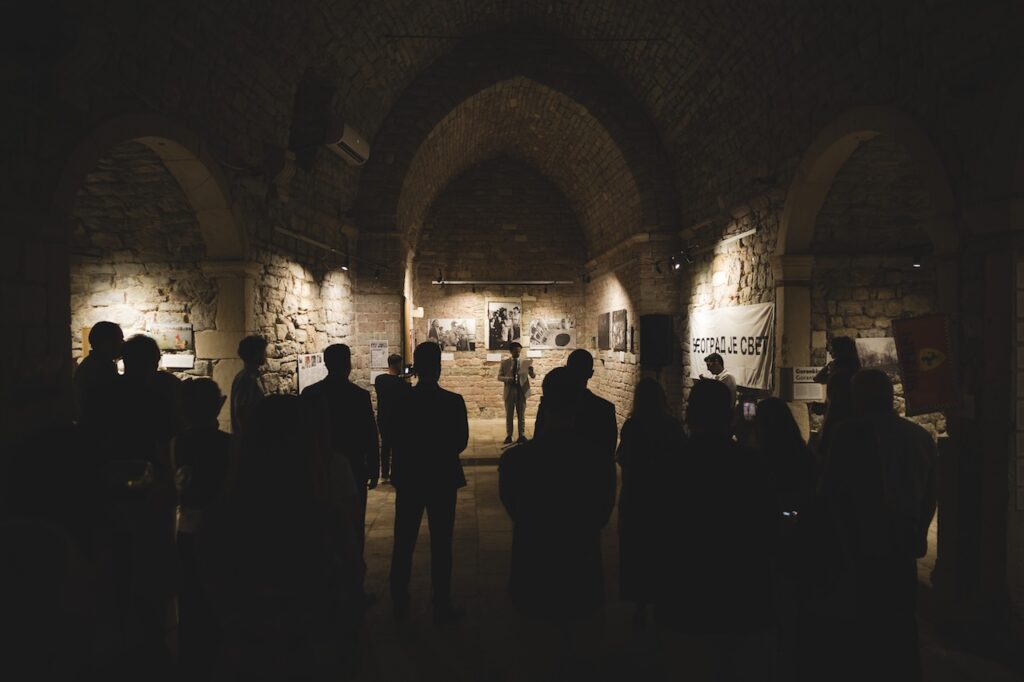
“The nineties, as a period that still strongly shapes us today, left deep scars on our communities, families, and individual lives. This exhibition is an opportunity to reflect on how that decade also gave rise to acts of courage, solidarity, and moral integrity, which showed that even in the darkest of circumstances, human beings never lose the power to choose light over darkness,” said Nikola Jovanović, President of the Municipality of Budva, while opening the exhibition. Jovanović emphasized that it was a time in which fear, uncertainty, and division were often imposed as the only framework of existence, but also a period in which people and ideas emerged that testified that sources of light could be found even in the darkest circumstances. “Budva, a city of millennial tradition, is tonight proudly hosting this event, thereby confirming that it nurtures a culture of remembrance as one of its fundamental values, reminding us that in times of trial, resistance is the duty of the entire society that wants to preserve its integrity,” Jovanović stated.
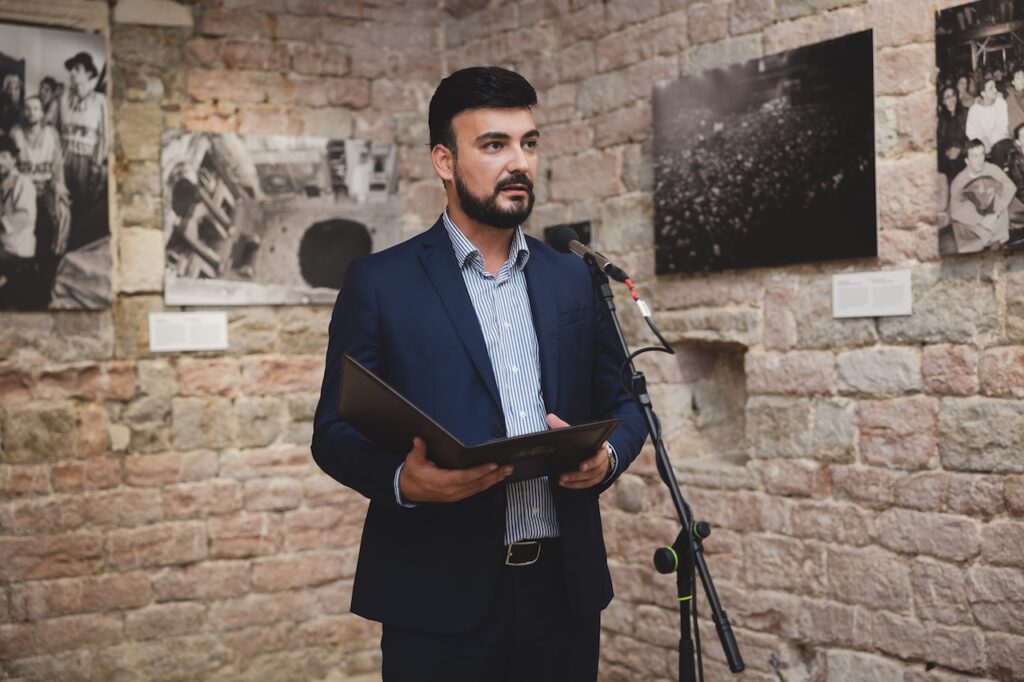
Corwin van Strien, First Secretary of the Embassy of the Kingdom of the Netherlands, highlighted the importance of the exhibition, which reflects on a decade that changed the lives of millions of people in the region and beyond, with lasting consequences. “Unresolved issues such as nationalism, populism, and violence openly threaten regional and global peace, stability, and prosperity. If we want a future that is built on mutual understanding and trust, rather than suspicion or resentment, we must be willing to examine our own roles and responsibilities – not just those of others,” he stated, emphasizing the social necessity of self-reflection, no matter how difficult it may be. Van Strien commended the effort to use the format of an exhibition to critically reflect, research, question, and learn about the 1990s. “In that sense, this is not only a museum of the past – but also a look into the future,” he concluded, extending gratitude to the authors, organizers, and hosts of the exhibition.
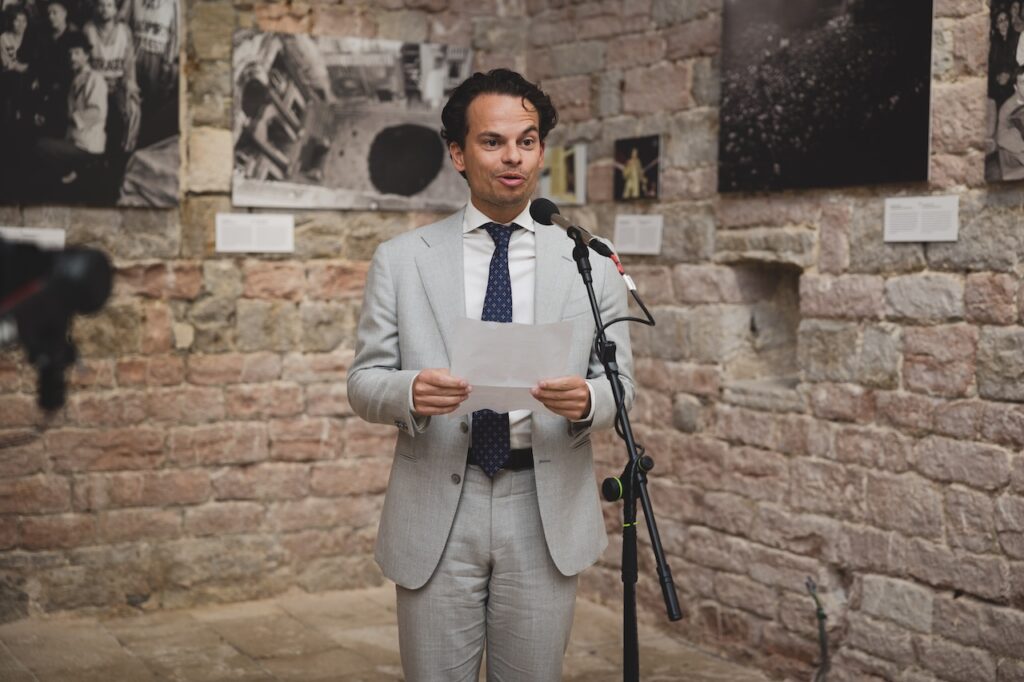
“This exhibition is unique because it breaks away from traditional narratives, inviting us to explore a complex story that includes personal experiences, conflicting memories, and multiple perspectives. It reminds us that history is not written only in official archives, but also in the lives of those who were displaced, silenced, or who resisted violence,” said Bertrand Baucher, Deputy Ambassador of the Republic of France. “The exhibition offers a chance to rebuild understanding, even on the most painful issues, helping to shape a shared future and a society that strives to be more just, open, and resilient. This vision aligns with the Shared Horizons project, French-funded regional programme promoting initiatives to strengthen dialogue, build trust, and foster cooperation in the Western Balkans,” he emphasized, expressing pride that France supports the exhibition.
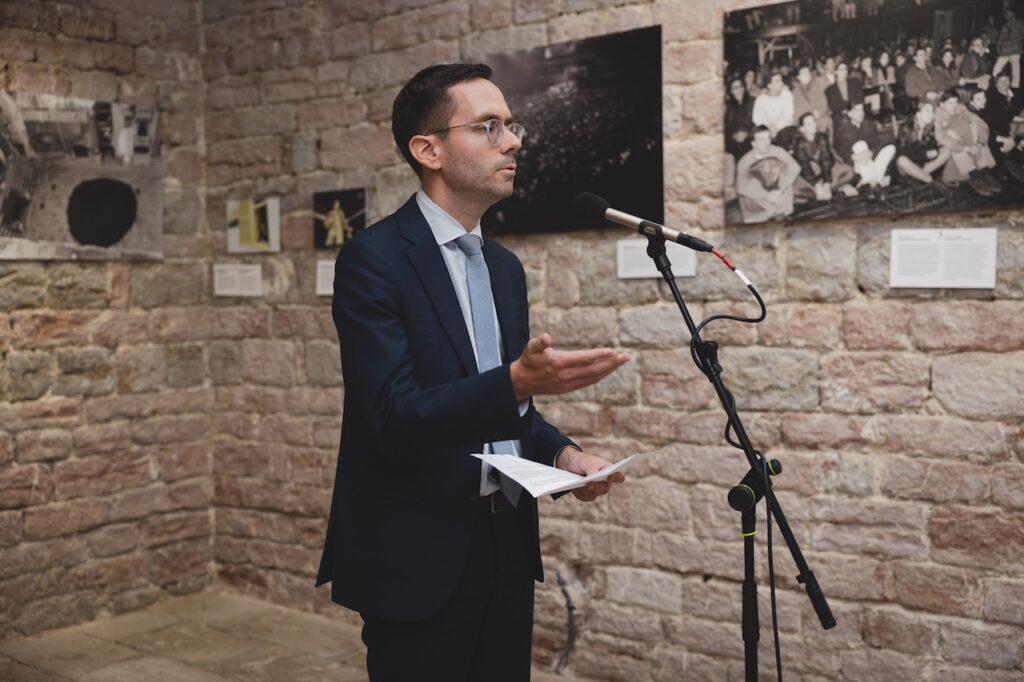
“The nineties were not only a time of war, hatred, and violence, but also a time of resistance, because there were people who chose a different path – the path of civic courage, solidarity, and dignity,” said Daliborka Uljarević, Executive Director of CCE. Uljarević pointed to current attempts to reinterpret that decade through ideological revisionism. “This exhibition is important because it brings us back to the facts, the stories, and the faces of those who had the strength to resist,” she stressed, noting that “courage, modesty, and integrity have never been dominant categories, but they have always been the driving force of change.” She concluded that “this lesson from the nineties is equally important today, as we live in a time when nationalism, intolerance, and authoritarian reflexes are once again on the rise – but also a time in which courageous individuals, as well as the values on which the EU is founded, are even more precious.”
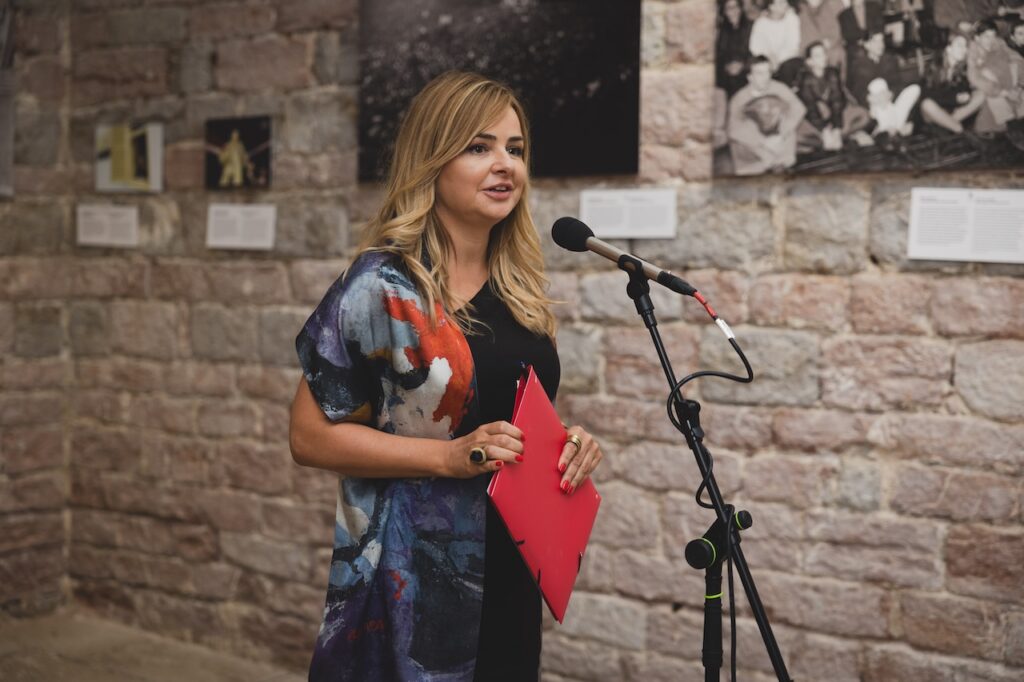
“I am glad that this exhibition is being held precisely in Budva. I think that with this and similar displays we will never be in an older and more fascinating venue,” said one of the exhibition’s authors and Director of KC Grad, Dejan Ubović. He explained that the exhibition represents one segment within a broader story about the anti-war movements of the nineties and the first independent media, which at that time offered an alternative to dominant narratives. “Today, monuments are being erected to some other people, but our idea is that society would function better if people from our Map of Heroes – such as Tomo Buzov, Srđan Aleksić, and others – found their place in history textbooks,” he said. Ubović emphasized that the aim of this initiative is, above all, for young people from Budva and the surrounding area to have the opportunity to see, read, and reflect on values that can form the foundation of a better future.
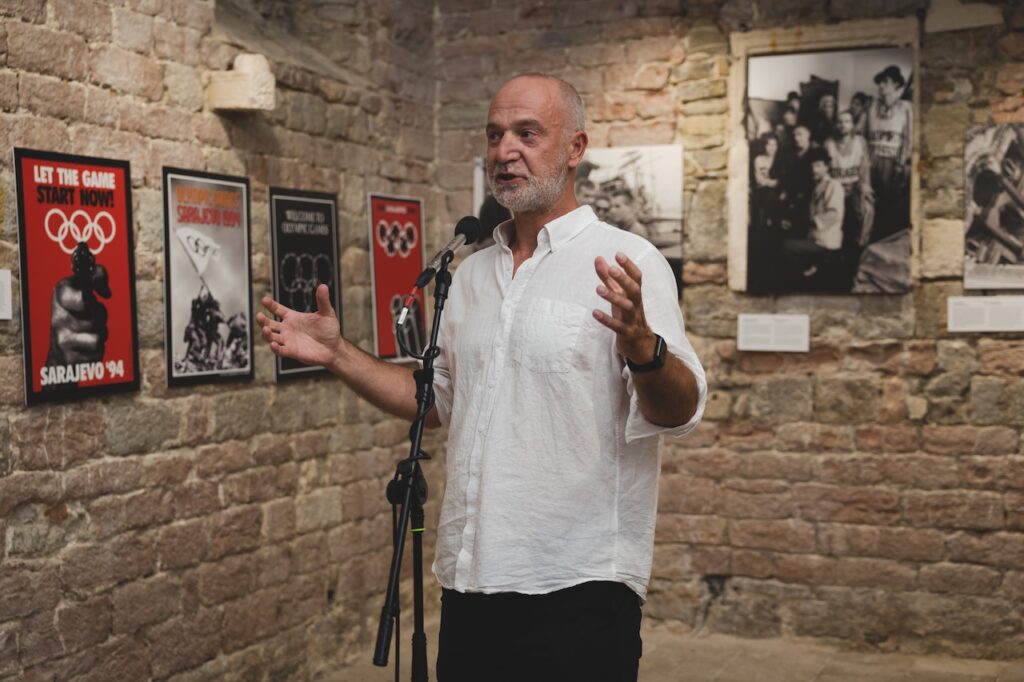
The exhibition will be open to the public until 30 September 2025, every day except Mondays, from 10:00 to 20:00.
The exhibition is organized by Cultural Front, Foundation M90 and CCE, with the support of the Ministry of Foreign Affairs of the Kingdom of the Netherlands through the MATRA programme, as well as the European Fund for the Balkans (EFB) and the Shared Horizons project, funded by the Republic of France and implemented by Expertise France Groupe AFD. The content of this exhibition is the sole responsibility of the authors and does not necessarily reflect the views of the donours.
Maja Marinović, Programme Associate
